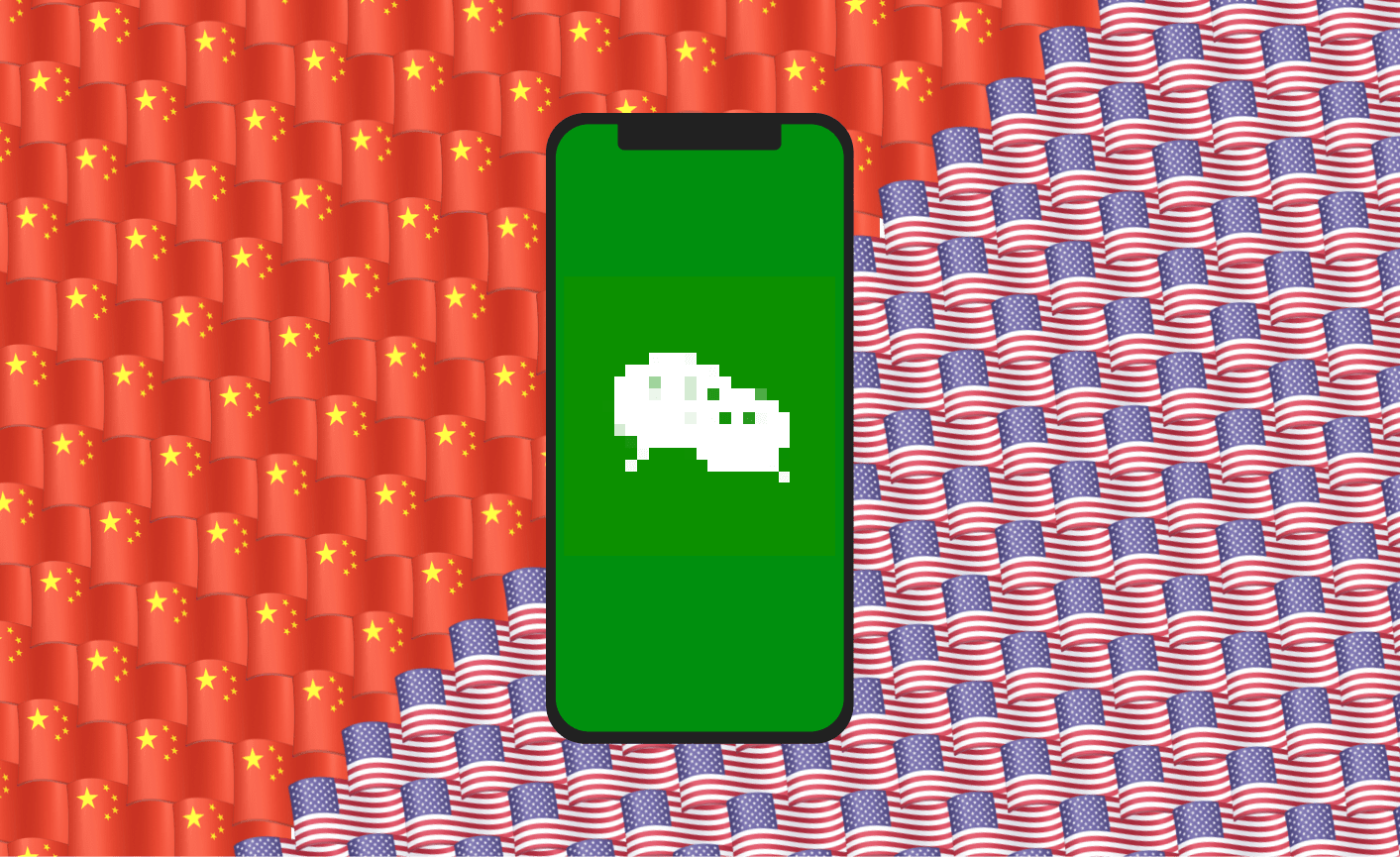On September 20, transactions with the parent companies of WeChat and TikTok will become illegal per a new executive order by President Donald Trump’s White House. Although TikTok’s pending demise in the US may be averted if purchased by Microsoft or another American firm, its potential shutdown has grabbed the lion’s share of mainstream media’s sympathy between the two Chinese apps. Popular among teenagers and influencers, TikTok needs little cultural translation and has eased its way into Americans’ app-consuming habits. This is why banning it would sting so much in the eyes of the American mainstream—it’s friendly, effusive and all-around popular (Black cultural appropriation and algorithmic suppression of minority videos notwithstanding).
The WeChat ban, on the other hand, has seldom been discussed outside of Asia policy circles. Unlike TikTok, WeChat is relatively unknown within the US. It’s more easily coded as foreign due to its unfamiliar interface and extensive Chinese-language content used in its blogs, posts and features. More critically, its America-based users are primarily Chinese nationals or people with connections to mainland China; Taiwan’s tech users usually opt for Japanese-Korean Naver corporation’s LINE messenger. That WeChat is overlooked because it is much less known to the West obscures a far more serious set of issues in a potential ban.
The new Trump executive order comes after a series of policies that are meant to discourage travel, exchange, and other types of connections between China and the US. As diplomatic relations between Beijing and Washington fizzle, the White House and State Department are working to hasten the decoupling by zeroing in on Chinese individuals, families and communities that live within the US.
Since WeChat’s growth into an all-in-one app that acts simultaneously as a wallet, video conferencing tool, messaging platform, news aggregator, and something akin to a mobile operating system, the super-app has been Chinese nationals’ lifeline overseas. A ban on it would discourage longer-term business and student travelers from China and cause potential Chinese nationals to avoid studying or doing business in the US altogether.
The ban will not, however, discourage Chinese nationals from using an app that’s already integrated itself into China’s daily living habits; from settling payments to calling taxis to doing healthcare check-ins. When studying abroad, the app’s out-of-the-box features allow students to easily call home, wire money and other functional features. Chinese diaspora and Chinese Americans who live abroad will struggle to communicate with family and loved ones back in China, already preparing to revert to phones and email. Even multinational companies have had formal communications channels on WeChat. But among these groups, those hit the hardest will be low-wage Chinese diaspora, who may lack the time and resources that their white-collar counterparts have in order to finagle VPNs and other workarounds.
By late September, Apple and Google will be faced with tough questions as both Android and Apple app stores may be forced into banning downloads and updates of WeChat as the executive order comes to fruition. Furthermore, there are already rumors that Chinese-made phones will not be affected, which could discourage purchases of iPhones and other Apple devices. Ironically, one of Apple’s biggest competitors is Huawei, which despite being put on an export blacklist to the US last May, has beaten out Samsung and Apple and taken the top spot in phone sales this year.
In 2020, it’s nearly impossible to detangle geopolitics from money. Neither capitalists from the US nor China will make such a task easy to accomplish.
Tencent itself, despite geopolitical tensions, has been happy to invest money in American markets. One splashier example of Tencent joint ventures is the Sony film Into The Spider-Verse which has Miles Morales and his family use QQ to text, despite being English and Spanish-speaking natives of Brooklyn, New York. Besides being the parent company to WeChat, Tencent also touts significant investment in Reddit, Fortnite, Discord, Riot Games, and other technology brands that are just as visible as TikTok within American culture. If there is to be a hard decoupling, as Trump and other conservative politicians often say, it will threaten the global capital environment that for so long has been happy to leave politics aside for the sake of wealth accumulation. But in 2020, it’s nearly impossible to detangle geopolitics from money. Neither capitalists from the US nor China will make such a task easy to accomplish.
While the looming ban on WeChat is widely seen as Trump’s latest move in this new Cold War, Tencent’s culpability in China’s own methods of oversight and control of its citizens should not be overlooked. Articles, blog posts, and even memes that go against the party line are punished by sealing the user’s account. Discussions that are politically incorrect in Beijing’s eyes can lead to groups getting shut down with the same degree of permanence. During COVID-19’s peak within China in February 2020, WeChat actively censored keyword combinations such as “U.S. CDC” and “Coronavirus,” as well as references to whistleblower Dr. Li Wenliang, collective action and criticism of the government’s handling of the epidemic. But WeChat’s heavy-hand in aiding state censorship has not gone undetected by its users. Chinese activists and dissidents have started using the secure messaging app Signal, whose adoption among Chinese citizens based in the US has also seen a rise since Trump’s order.
In a system that is unable to hold corporations or the Chinese Communist Party fully accountable, most users swallow such circumstances in order to maintain some connection to their family.
Regardless of creed or political stripe, the controls of law enforcement by Beijing’s government loom large for the Chinese diaspora. If there is any silver lining to these potential bans, it’s that data privacy and a reliance on tech conglomerates might become a bigger concern within WeChat-using communities.
While the costs of a ban of WeChat and potential future restrictions on Tencent’s broader American-based portfolio may further alienate US capital from China’s market, these entities have financial cushions and highly paid strategists that will soften the blow. But ordinary Chinese diaspora, from wage workers in America’s restaurants to construction sites, do not possess such luxuries. Like previous instances where US politicians announced that China ostensibly will pay for infractions, the brunt of the new ban’s consequences will again fall on ordinary people caught between the two nations.




